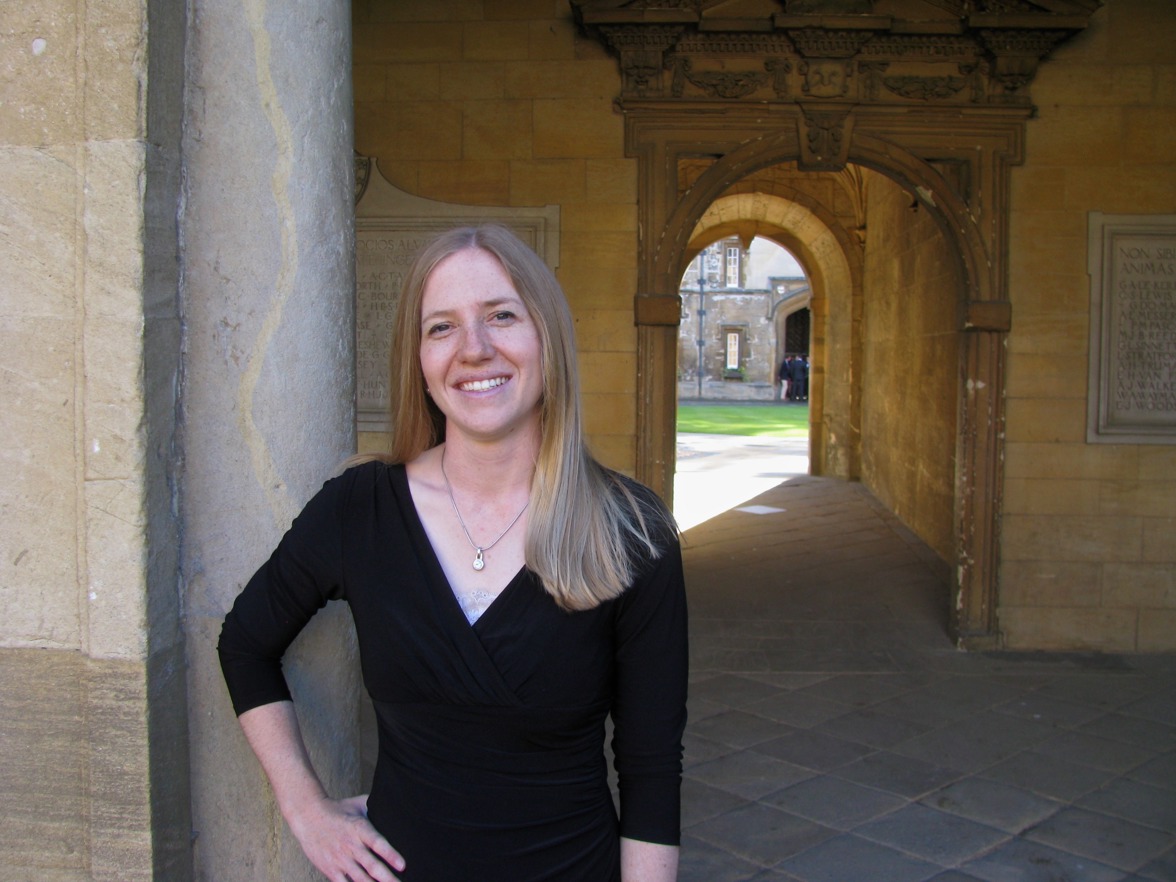When I came to Oxford as the first deaf Rhodes Scholar who used sign language, I hardly knew what to expect. The barriers at first seemed daunting. I would be surrounded by the highest-achieving hearing peers I had ever met, and I felt intimidated by the very thought of communicating with them. Like my fellow scholars, I would be adjusting to living in a foreign country, but through a very different language, culture, and access barrier than any of them experienced. The local sign language, British Sign Language, was not my own. I would need to sort out how to gain access to American Sign Language interpreters for my degree program while working with a different education system than I knew. My list of worries ran on. Some of them were rather ordinary: how would I deal with the notorious rain in Oxford? But many others had to do with access.
Two years later, I left Oxford with many more incredible experiences and friendships than I could have expected – and also many more thoughts about the topics of accessibility that I aspire to keep addressing in new ways. While reading for my second degree in Oxford, an MSc in Higher Education, I wrote a dissertation on the perceptions that deaf and hard-of-hearing students have on using accommodations and gaining accessibility in mainstream American universities. The 18 students I interviewed for my dissertation exposed me to a range of perspectives and experiences. Many used sign language; others did not. They came from different backgrounds and attended a range of higher education institutions. Most of them addressed the strategies they had learned to interact with their all-hearing environment. Their words helped flesh out the existing research literature with firsthand observations on what accommodations worked well, and why and how. They told me about the balance they found between academic and extracurricular accommodations, and how they interacted and formed connections with others on campus.
My choice of dissertation topic was not accidental. My own experiences as a deaf student, at Oxford and elsewhere, had taught me that achieving a truly accessible mainstreamed learning environment was a difficult experience that involved many moving parts. Accessibility could start with the official disability provisions provided by a university administration, but it was more complex than that: it also involved routine interactions with professors and peers, as well as underlying awareness and social attitudes about deafness and disability. Twenty-five years after the Americans with Disabilities Act was passed into law in the United States, I wanted to know how other deaf students navigated the complex situation of pursuing an education in an all-hearing university.
My dissertation research reiterated the point that education goes far beyond the classroom. Thus accessibility, in educational contexts, ought to do the same by encompassing all the spaces and activities students inhabit. However, true accessibility is more than “mere” accommodation. Pursuing full access in the university environment involves promoting good communication and mindful behavior practices among hearing faculty members and peers – not only assuming that a level playing field automatically exists, just because a sign language interpreter or other accommodation is in the room. What defines “accessibility” can also vary individually. My research sample of deaf and hard-of-hearing students was a highly heterogeneous group, with different communication preferences and different approaches to learning. The maxim “one size does not fit all” applies to this population, and applies even more when considering the needs of individuals with other disabilities. Universities and other institutions have the responsibility to determine how best to fit students’ needs and be flexible to their individual circumstances.
I realized that many of my research findings paralleled lessons I was learning about life and education at Oxford. My experience at Oxford taught me anew that true education is indeed something that spills over to many aspects of life beyond the classroom. Like many other Rhodes scholars, I often found that I learned far more from my peers at Oxford than I did from my classes, simply by taking the time to sit down and ask questions. This realization bolstered my faith in lifelong learning and solid friendships. I also found how necessary it was to start open conversations about accessibility, both to raise individual awareness and to keep institutions accountable. And while I continued to work on strategies for addressing my own needs as a deaf person, the diversity I encountered at Oxford reminded me to keep learning about other people’s needs and perspectives, too.
While some aspects of my time at Oxford remained challenging, I did find ways to surpass many of my initial doubts about being a deaf Rhodes scholar. Accessibility and inclusion are among the pressing questions of our time, and both the academic and personal lessons I learned in the UK have shaped my continued work on these topics. They have given me more tools to keep questioning, keep learning from others, and keep seeking better approaches to address and discuss disability.
Rachel Kolb (New Mexico & St John's 2013) read for a MSt degree in English literature (1900-present) followed by an MSc in Education during her time at Oxford. She has recently embarked on a PhD in English Literature at Emory University in Atlanta GA. Rachel has also presented a popular TEDx talk entitled Navigating Deafness in a Hearing World.


